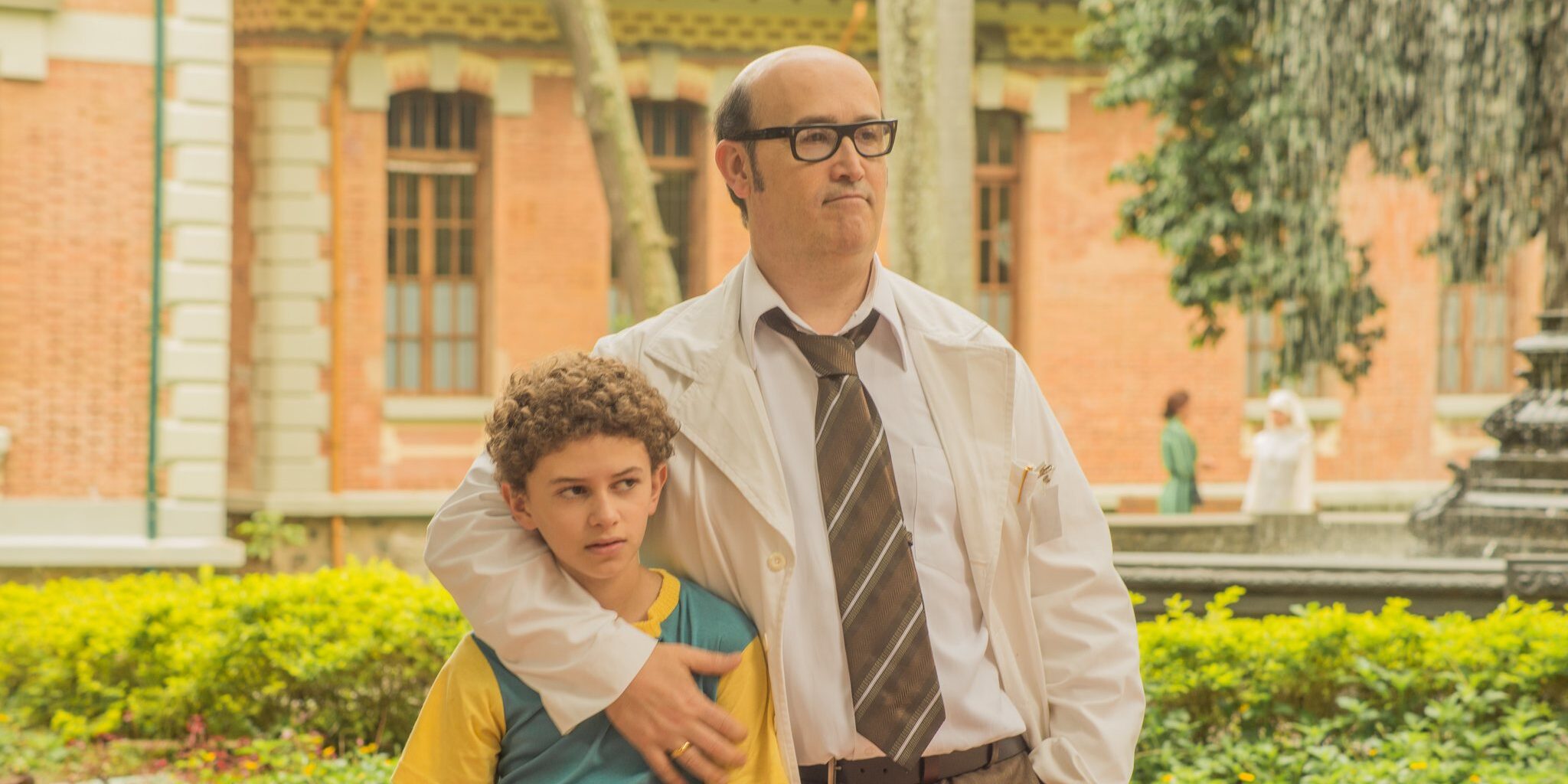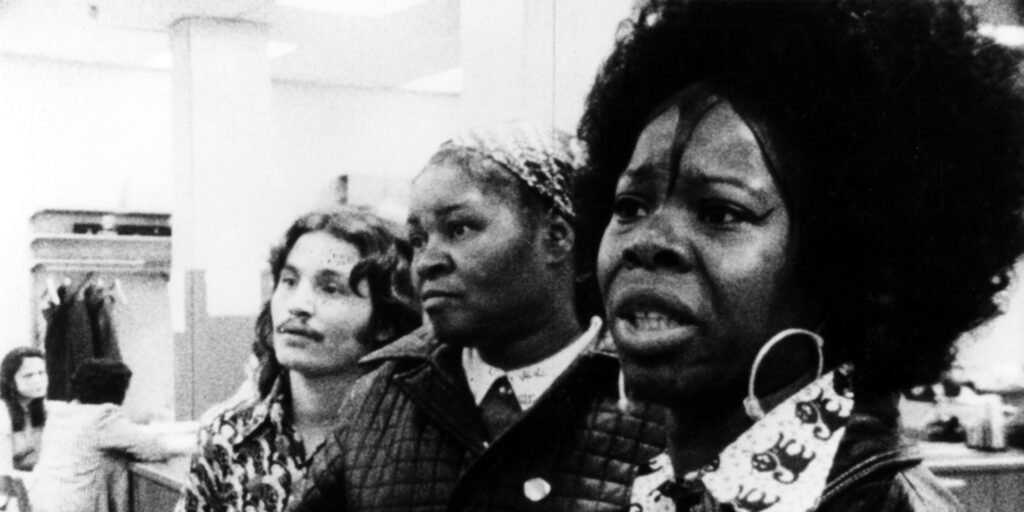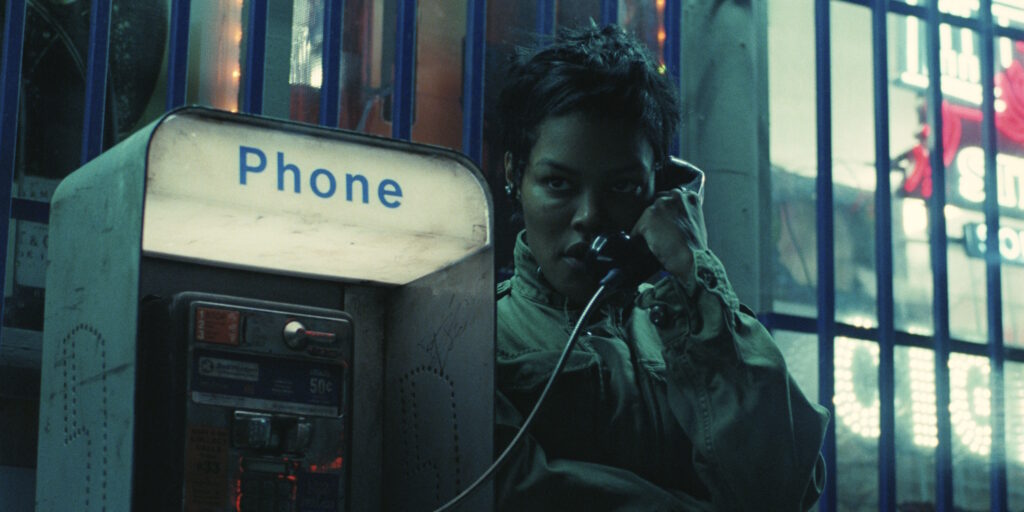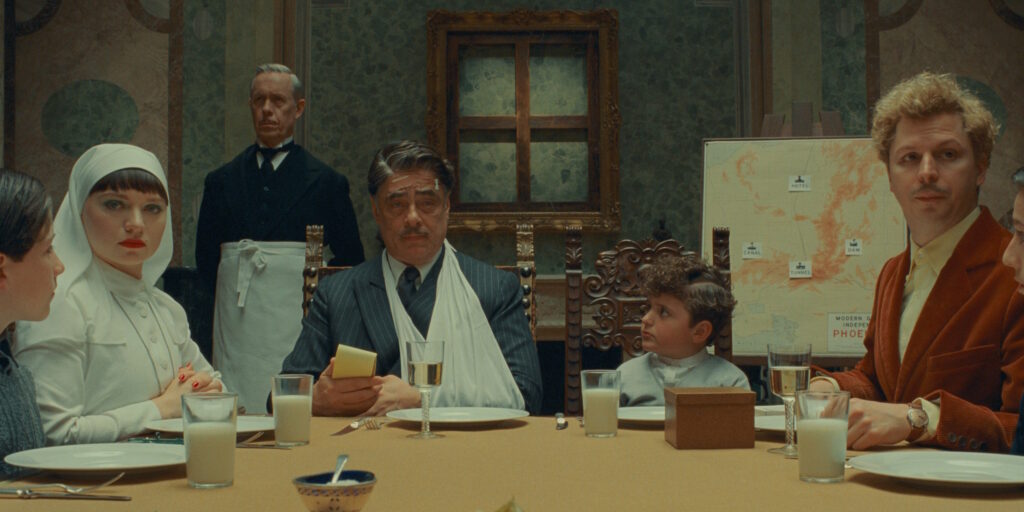[Originally published at Cinema St. Louis’ The Lens.]
For most American viewers, Spanish filmmaker Fernando Trueba is likely best known for his sun-dappled romantic dramedy Belle Epoque, which clinched the Oscar for Best Foreign Language Film in 1994 (and also screened at SLIFF). However, Trueba has been working at a steady clip since the early 1980s in a variety of genres, racking up three Best Director prizes at Spain’s Goya Awards. In that time, he has made an erotic thriller (Twisted Obsession), a coming-of-age romance (Year of Enlightenment), and a period-drama diptych about the intersection of politics and moviemaking (The Girl of Your Dreams, The Queen of Spain).
While Trueba’s works have previously touched on Latin American settings (The Dancer and Thief, Chico and Rita), his latest feature, Memories of My Father, is primarily a Colombian production, telling a story that is tightly entwined with that nation’s identity and history. Trueba adapted the screenplay from the 2006 memoir Oblivion by Colombian novelist, essayist, and cultural critic Héctor Abad Faciolince. The film unfolds primarily in the author’s native city of Medellín in the 1970s and ‘80s, focusing – as the feature’s U.S. title denotes – on Faciolince’s late father, the public-health physician and human-rights activist Héctor Abad Gómez.
In its portrayal of middle-class Latin American family life in the late 20th century, Memories of My Father perhaps inevitably evokes Alfonso Cuarón’s 2018 semi-autobiographical opus, Roma. However, Trueba’s film is a more traditional coming-of-age drama than that feature, following the author’s life from tween to young adult as his relationship with his idealistic father evolves. While Faciolince (“Quiquin” to his mothers and five sisters) is the protagonist, the feature is a conflicted but heartfelt love letter to the elder Héctor (Talk to Her’s Javier Cámara). Even during Quiquin’s inevitable period of adolescent rebellion, Memories of My Father is bursting with affection for Héctor Sr., a role model of non-toxic masculinity defined by his intellect, principles, and gentle, patient demeanor.
Trueba presents the first half of his feature in gold-kissed Kodachrome hues, reflecting Quiquin’s recollections of a chaotic but broadly joyful childhood. (The author is played by Nicolás Reyes Cano as a child and by Memoria’s Juan Pablo Urrego as a young man). However, this lively, nostalgic portrait of daily life is rustled by cultural currents that the boy does not yet fully understand. In one formative incident, Héctor Sr. frog-marches Quiquin to a neighbor’s house to apologize for an antisemitic prank. In another, the boy wanders wide-eyed through a rural hospital ward, face-to-face with malnourished children his own age. Even within his own family, there are low-key tensions: At his mother Cecilia’s insistence, Quiquin receives religious instruction from a nun who declares that his atheist father will burn in Hell, much to the boy’s alarm and confusion.
Following a gutting family tragedy, Trueba jumps forward in time and switches to black-and-white photography, emphasizing the hard, jagged line between the relative innocence of the protagonist’s childhood and the emergent pessimism of his university years. Notwithstanding the shattered vulnerability that Quiquin observes in his father at the man’s lowest point, the defining trait of Héctor Sr. proves to be his constancy. Times change, but he does not: His belief in equality, justice, and nonviolence sees him ostracized as a Marxist sympathizer in the 1970s, while a decade later he is branded as a de facto fascist by his own revolution-minded students. The brilliant mind and steadfast integrity that awed Quiquin as a child eventually come to frustrate him, as he grows to perceive the hidden costs his family has paid for his father’s outspoken do-gooder impulses.
Ultimately, however, Trueba is less interested in critiquing Héctor Sr.’s perhaps rigid idealism than memorializing his extraordinary virtues. Although the film does not paper over the sourer (or bloodier) aspects of Faciolince’s memoir, Memories of My Father is foremost a tribute to a man that the author plainly idolized, as much for his indefatigable warmth as for his wider efforts in public health and human rights. Tellingly, the image of Héctor Sr. that Trueba returns to several times throughout the film is a lighthearted one: a father playfully spying on his son through a rolled-up paper tube. In a household where they were perpetually surrounded by a whirlwind of girls and women, it is a gesture both whimsical and poignant, a means for Héctor Sr. to silently convey to his only his male child, “I see you, my son.”
Memories of My Father will screen at the Plaza Frontenac Cinema at 7:15 p.m. on Friday, Nov. 4.




